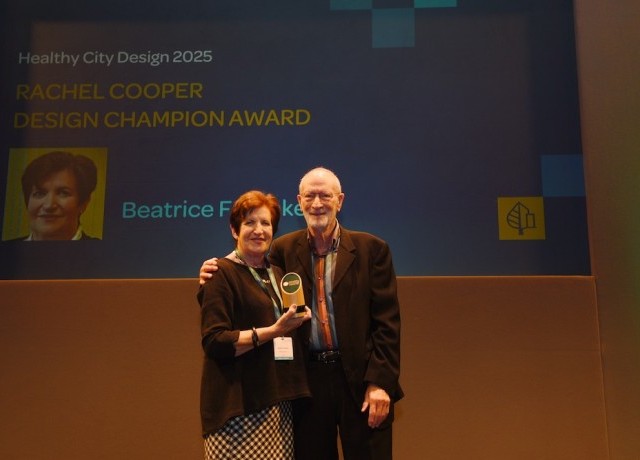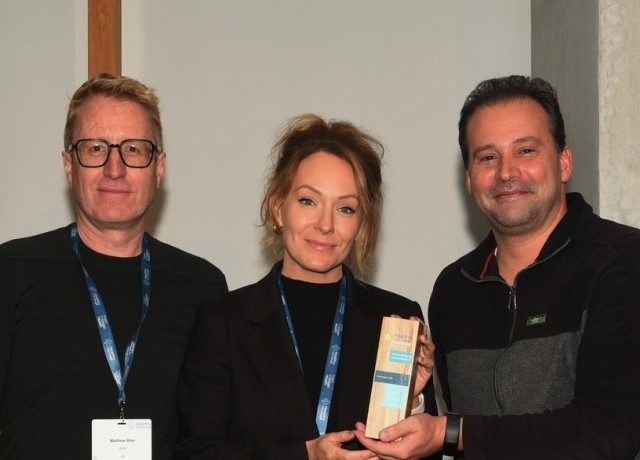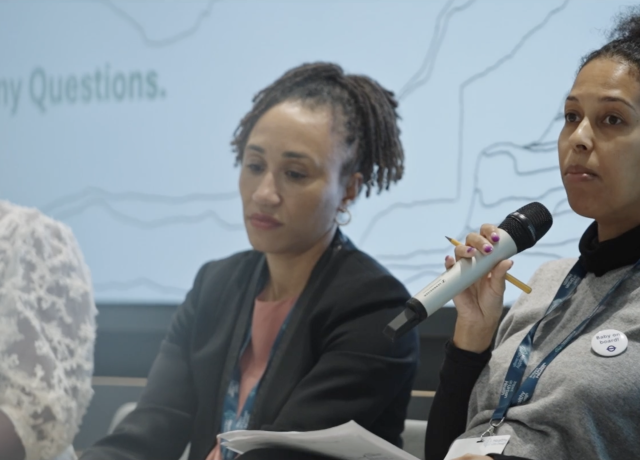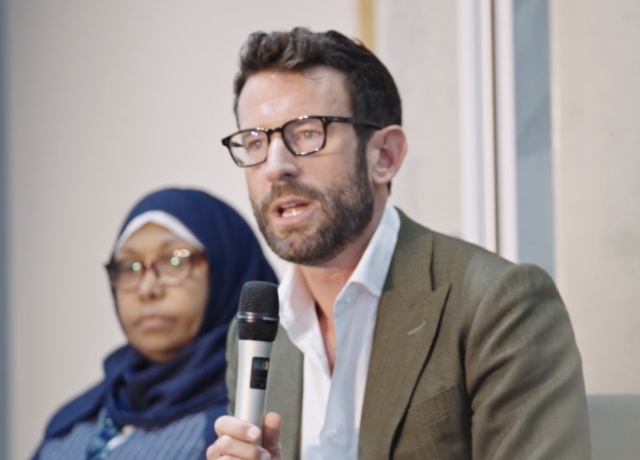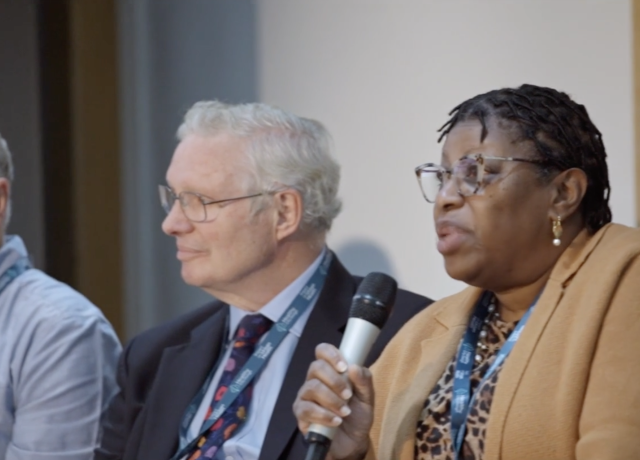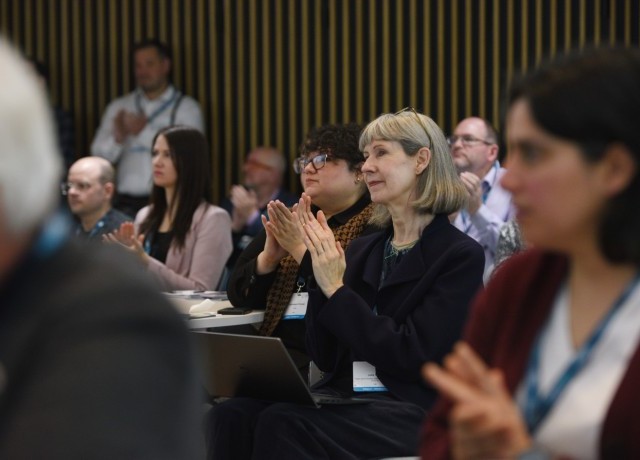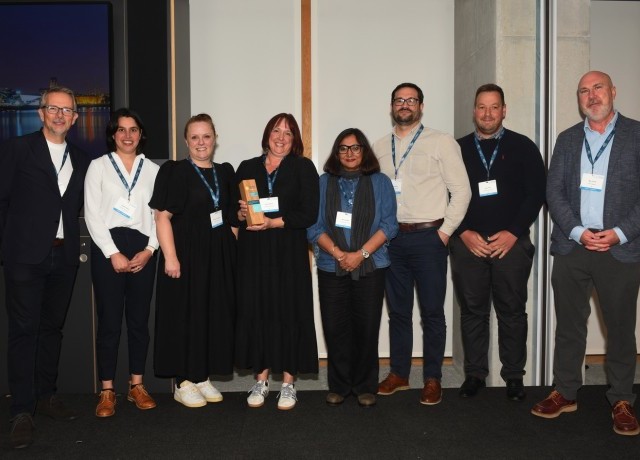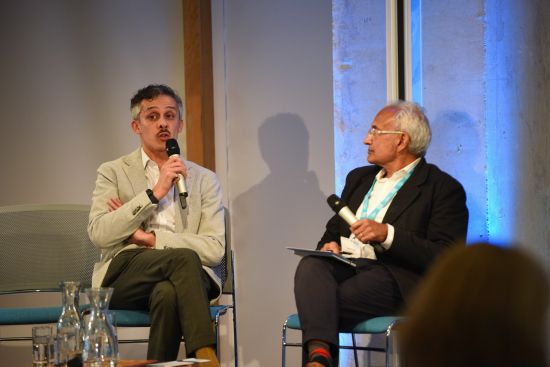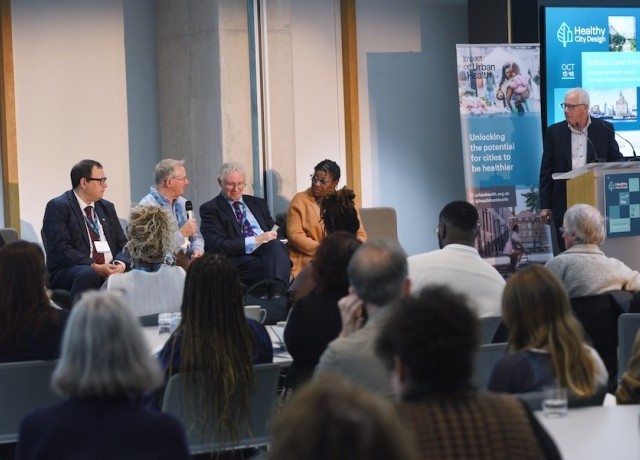
Keynote summary: Panel – Advancing health equity
“There is still a temptation to talk about health as healthcare, hospitals, physicians, and pills. But we need to think about it in very different terms.”
So said House of Lords independent crossbench member Lord Nigel Crisp, who was speaking as part of an opening keynote panel on advancing health equity at the Healthy City Design Congress.
“Health is made at home and in the community and in the workplace and in the temple – and in and in and in,” he said. “And actually, health is made, health can be created. We talk about disease prevention, but we also need to talk about health creation.
“We know what some of the causes of health creation are. We know that having a social life, we know having meaning and purpose. We know having access to nature. We know having a degree of autonomy in your life, as well as other things about diet and exercise, and so on. And those are areas where community workers and leaders can have a really major impact.”
Dr Yonette F. Thomas, PhD, president and chief executive at Urban Health 360, stressed the importance of engaging with communities.
“Covid-19 has forced us to rethink, as scientists, that we may have the ideas and the science, but communities don’t necessarily understand the findings and knowledge,” she said. “There’s that niggling feeling of we built it, why didn’t they come? We need you [the people] but how do we engage individuals, families and communities in this enterprise of the business of health?”
Gerry Proctor MBE, chair at Engage Liverpool, described a recent project in Liverpool called ‘Get Stuffed’, which taught some of the people who used food banks and food pantries, how to use an air fryer or a slow cooker. Having taught them how to cook and follow recipes, connected to food from the food bank, they received an air fryer. And these were families who were not eating any hot meals.
“When good governance and private enterprise work together, everybody benefits”
Show me the money
Dr Thomas underlined that listening to people in the community impacts the bottom line.
“When good governance and private enterprise work together, everybody benefits,” she said. “It’s really staying on that course, working with communities, listening and helping private enterprise, developers, bottom-liners, to recognise that they’re not going to lose. They might not achieve 3000 per cent profit but you can get, say, 1000 per cent profit. Everybody wins.”
Taking this a step further, Proctor argued that it’s not just about listening to people but about believing that local communities might even be ahead of you. And he also cautioned about the difficulties in navigating a market economy in trying to get things done.
He recalled how almost a decade ago, his organisation brought together three architects because it was concerned about the design of apartments in the city centre. One-bedroom and two-bedroom apartments were being designed for students, but there was nothing for families, nothing for the elderly to downsize, and nothing around sustainable living.
“We brought an architect from Paris, one from Rotterdam and one from Vienna, and we learned extraordinary things about how different European cities are designing for their people,” he noted. “But we were completely on hook to a market economy where the developer was king in every respect. If the developer said we can’t afford it, it didn’t happen. So, forget green roofs and forget having anywhere inside a building where you could get a community to meet.”
Lord Crisp concurred that connecting local development, local ambition and local knowledge with people who make the decisions is vital and showing how health impacts the economy could be a key influencer. By way of an example, he pointed to the HIV AIDS epidemic in Africa, which is considered to have cost Southern African countries at least 4 per cent of their GDP in terms of lost growth over ten years.
“That’s an extreme example but you could do something similar in Liverpool to calculate how much ill health is costing the economy,” he said.
But he also noted some risks, pointing to the current situation in the UK, where the new Government is keen to push on with reform. He expressed concern that this sense of urgency could mean it will not wait to get the governance right and the involvement right. “Because involvement does take a degree of time,” he warned. “If you get it right, it will have a bigger impact later down the line.”
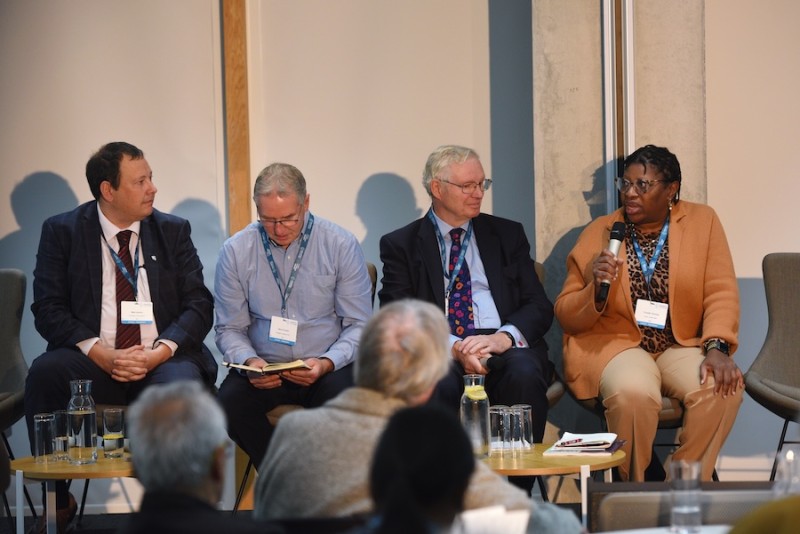 (l to r): Professor Matt Ashton; Gerry Proctor MBE; Lord Nigel Crisp; and Dr Yonette F. Thomas, PhD
(l to r): Professor Matt Ashton; Gerry Proctor MBE; Lord Nigel Crisp; and Dr Yonette F. Thomas, PhD
Priority areas
Asked about what the key priorities are around the healthy city other than housing and neighbourhoods, Dr Thomas emphasised the importance of transport and food. She described the experience of Baltimore, Maryland, where in the lower end of the city, the most vulnerable have difficulty accessing safely transportation routes to the city centre. Consequently, this impacts on access to healthy food and the presence of food deserts.
Turning to Liverpool, Professor Matt Ashton said the Council’s neighbourhood strategy aimed to connect 13 neighbourhoods and ensure people have access to the opportunities and resources they need to move around the city to live healthier lives.
“Part of this is about reconnecting urban planning and public health – from a political perspective, Liverpool is determined to get it right,” he said. “How? Starting with your strategic framework, your Local Plan is really important. How do we embed health into the Local Plan to make it a healthy Local Plan.”
Proctor emphasised the importance of the physical and social environment. “We did a report called Blue-Green Liverpool, because we live in a city centre that doesn’t have a lot of green. It has a lot of grey and we need to green the grey. But Liverpool, with its waterfront, has a huge amount of blue. We could have some quite inspirational floating pontoons for gardens and wildlife that we could encourage.
“Liverpool has some really good, quality parks, predominantly in the south end of the city. We could link them all up. We need to think outside the box.”
Event news
Connected futures: Regenerating Trafford and Salford together
20th November 2025
MediaCity: Designing tomorrow’s creative and healthy communities
19th November 2025
Community-led regeneration: Salford’s next century
19th November 2025
From a ‘Dirty Old Town’ to a thriving, modern city
19th November 2025



